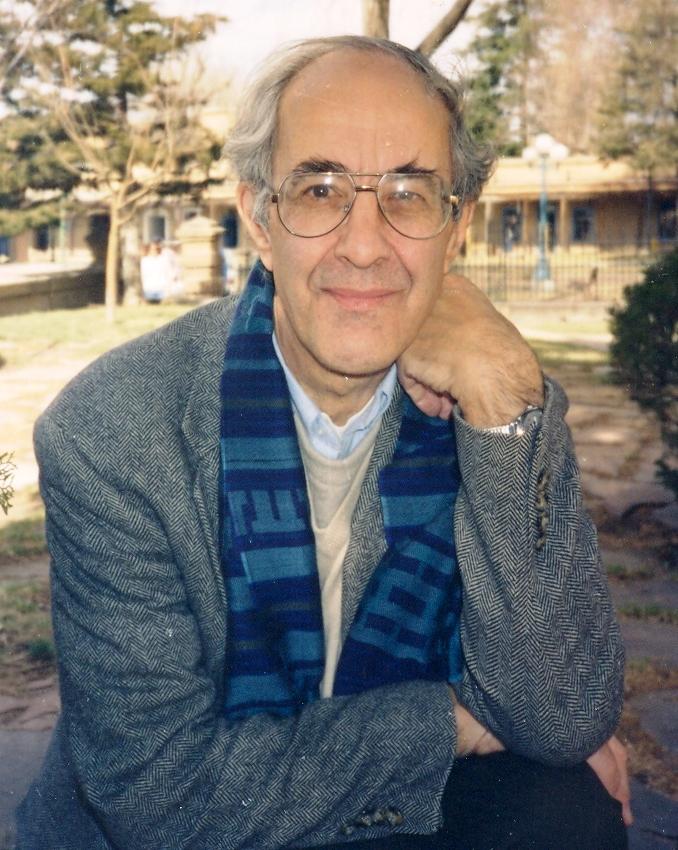Out of Solitude
Henri Nouwen: Cytaty po angielsku
“We often confuse unconditional love with unconditional approval.”
Bread For the Journey (1996)
Kontekst: We often confuse unconditional love with unconditional approval. God loves us without conditions but does not approve of every human behavior. God doesn’t approve of betrayal, violence, hatred, suspicion, and all other expressions of evil, because they all contradict the love God wants to instill in the human heart. Evil is the absence of God’s love.
Źródło: With Open Hands (1972)
Kontekst: Prayer leads you to see new paths and to hear new melodies in the air. Prayer is the breath of your life which gives you freedom to go and to stay where you wish and to find the many signs which point out the way to a new land. Praying is not simply some necessary compartment in the daily schedule of a Christian or a source of support in time of need, nor is it restricted to Sunday mornings or mealtimes. Praying is living. It is eating and drinking, action and rest, teaching and learning, playing and working. Praying pervades every aspect of our lives. It is the unceasing recognition that God is wherever we are, always inviting us to come closer and to celebrate the divine gift of being alive.
With Open Hands (1972)
Kontekst: Prayer leads you to see new paths and to hear new melodies in the air. Prayer is the breath of your life which gives you freedom to go and to stay where you wish and to find the many signs which point out the way to a new land. Praying is not simply some necessary compartment in the daily schedule of a Christian or a source of support in time of need, nor is it restricted to Sunday mornings or mealtimes. Praying is living. It is eating and drinking, action and rest, teaching and learning, playing and working. Praying pervades every aspect of our lives. It is the unceasing recognition that God is wherever we are, always inviting us to come closer and to celebrate the divine gift of being alive.
“To pray means to open your hands before God.”
With Open Hands (1972)
Kontekst: To pray means to open your hands before God. It means slowly relaxing the tension which squeezes your hands together and accepting your existence with an increasing readiness, not as a possession to defend, but as a gift to receive. Above all, prayer is a way of life which allows you to find a stillness in the midst of the world where you open your hands to God’s promises and find hope for yourself, your neighbor and your world. In prayer, you encounter God not only in the small voice and the soft breeze, but also in the midst of the turmoil of the world, in the distress and joy of your neighbor and in the loneliness of your own heart.
With Open Hands (1972)
Kontekst: Only within this kind of life does a spoken prayer make sense. A prayer in church, at table or in school is only a witness to what we want to make of our entire lives. Such a prayer reminds us that praying is living and it invites us to make this an ever-greater reality. Thus, there are as many ways to pray as there are moments in life. Sometimes we seek out a quiet spot and want to be alone, sometimes we look for a friend and want to be together. Sometimes we like a book, sometimes we prefer music. Sometimes we want to sing out with hundreds, sometimes only whisper with a few. Sometimes we want to say it with words, sometimes with a deep silence.
With Open Hands (1972)
Kontekst: To pray means to open your hands before God. It means slowly relaxing the tension which squeezes your hands together and accepting your existence with an increasing readiness, not as a possession to defend, but as a gift to receive. Above all, prayer is a way of life which allows you to find a stillness in the midst of the world where you open your hands to God’s promises and find hope for yourself, your neighbor and your world. In prayer, you encounter God not only in the small voice and the soft breeze, but also in the midst of the turmoil of the world, in the distress and joy of your neighbor and in the loneliness of your own heart.
The Living Reminder: Service and Prayer in Memory of Jesus Christ (1977)
Kontekst: When we walk in the Lord's presence, everything we see, hear, touch, or taste reminds us of Him. This is what is meant by a prayerful life. It is not a life in which we say many prayers but a life in which nothing, absolutely nothing, is done, said, or understood independently of Him who is the origin and purpose of our existence.
The Wounded Healer (1972)
Kontekst: Jesus was a revolutionary, who did not become an extremist, since he did not offer an ideology, but Himself. He was also a mystic, who did not use his intimate relationship with God to avoid the social evils of his time, but shocked his milieu to the point of being executed as a rebel. In this sense he also remains for nuclear man the way to liberation and freedom.
“Fear makes us run away from each other or cling to each other but does not create true intimacy.”
Lifesigns: Intimacy, Fecundity, and Ecstasy in Christian Perspective (1986), p. 30
Encounters with Merton
In the Name of Jesus (1989)
The Inner Voice of Love
Bread For the Journey (1996)
Here and Now: Living in the Spirit (1994), pg. 175
Reaching Out: Three Movements of the Spiritual Life (1975), p. 74
